1. Around 5am, when the night was still covering the city, Pleiku woke up. In the thick fog, small coffee shops at Duc Long Gia Lai Bus Station, along Truong Chinh Street, Le Duan Street… had started operating.
The strong aroma of coffee spreads in the chilly space, blending with the aroma of bread carts. There, welcoming customers of all kinds. Hungry customers getting off the bus stop by to order a loaf of bread, a cup of hot coffee, or workers stop by…
I stopped by a small shop on Le Duan Street. The owner, a Jrai man, personally made me a cup of hot black coffee. After looking at my license plate, he probably guessed that I was not from the mountain town, so he said as an explanation: “Pleiku is cold in the morning. Sometimes, the fog is very dense and dense. Drink hot coffee to warm yourself up.”
Through a few words of conversation, I learned that he and his wife have been selling coffee on this street corner for many years, witnessing Pleiku from a small town to the bustling city it is today.
About 7 km north of the city center, Bien Ho appears like a watercolor painting in the middle of the plateau. The blue water reflects the sky, surrounded by lush green tea hills and pine forests. The reason the Jrai people call this place “Bien Ho” is not only because of its large water surface area but also because of the legends associated with it.
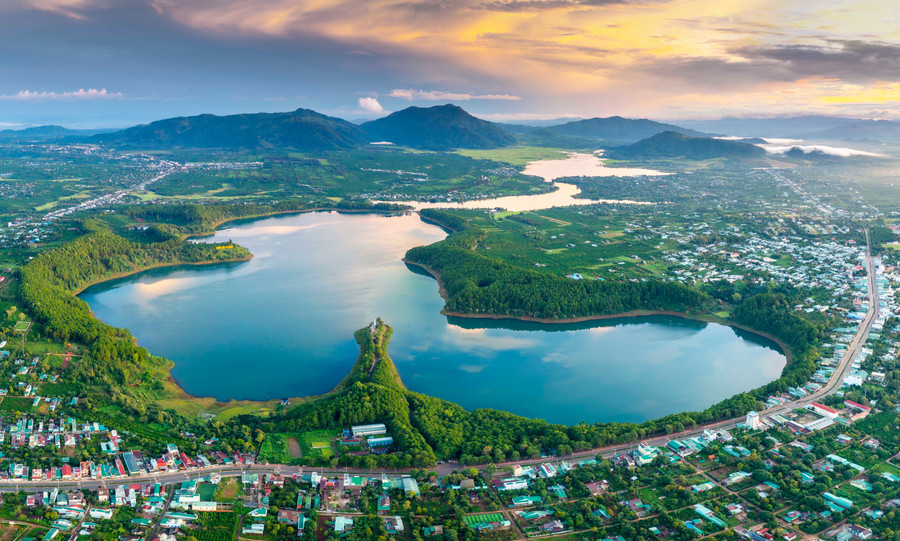
Pleiku is home to many ethnic groups such as Kinh, Jrai, Bahnar. The cultural exchange creates a colorful picture in the daily life of the city.
From a small town, Pleiku has transformed into a highland city that increasingly attracts tourists. High-rise buildings have sprung up in the middle of the city, and wide roads have replaced the old red dirt paths. The Great Unity Square and the Statue of Uncle Ho and the Central Highlands ethnic groups have become new symbols of the city.
I remember what Mr. Nguyen Hong Sam, a tourist from Ho Chi Minh City, once shared with me: “Pleiku is so different after more than 10 years since I returned. Before liberation, I used to live here. The whole town at that time had only a few main roads. Houses were sparse. Now, seeing the city develop more and more, I am very happy.”
If Buon Ma Thuot has long been considered the coffee capital of Vietnam, Pleiku is no less important in the Central Highlands coffee map. The coffee hills stretch out. Interspersed with pepper and rubber gardens, fruit trees such as durian, passion fruit, etc. create a typical agricultural picture of this land.
Ms. Nguyen Thi Hong - Owner of a coffee garden in the suburbs of Pleiku - chatted: "Pleiku coffee has a slightly bitter taste, a distinctive aftertaste and aroma thanks to the fertile basalt soil and fresh highland climate. Every year, when the harvest season comes, the whole area is bustling with the laughter of coffee pickers."
Visiting a small coffee roasting workshop in the city, I witnessed the manual coffee processing process. From the green coffee beans being dried to the meticulous roasting and grinding stage, everything is done with the passion and pride of the people of the mountain town.
2. When the sun sets behind the hills, Pleiku seems to put on a new coat. The central streets such as Hung Vuong, Le Loi, Pham Van Dong are brightly lit.
Pleiku’s youth gather at cafes, restaurants or simply stroll around the poetic Dien Hong Park. Couples walking side by side, families taking their children for a walk, the elderly exercising… all blend together in a vibrant picture of everyday life.
On weekends, at Dai Doan Ket Square there are also gong performances, bringing visitors the unique cultural beauty of the Central Highlands.
For those who live far away from home, Pleiku is always a place of unforgettable nostalgia. Ms. Nguyen Thi Thuong, a native of Pleiku who is living and working in Canada, confided: “Every time I hear someone mention Pleiku, I stop. I remember everything about the poor mountain town of the past, the misty mornings, the red dirt slopes, the scent of pine leaves, the gentle, honest poor workers here.”
With its strategic location as the center of the Vietnam-Laos-Cambodia Development Triangle, Pleiku has many opportunities for development. The city is gradually building the image of a green, environmentally friendly urban area, preserving its cultural identity during the development process.
Although Pleiku has changed, its soul remains its indigenous cultural values and the connection between people and nature. That is what makes Pleiku special in the hearts of those who have been here.
Source: https://baogialai.com.vn/pleiku-thanh-pho-tre-tren-cao-nguyen-xanh-post320776.html



![[Photo] Vietnam and Sri Lanka sign cooperation agreements in many important fields](https://vphoto.vietnam.vn/thumb/1200x675/vietnam/resource/IMAGE/2025/5/5/9d5c9d2cb45e413c91a4b4067947b8c8)
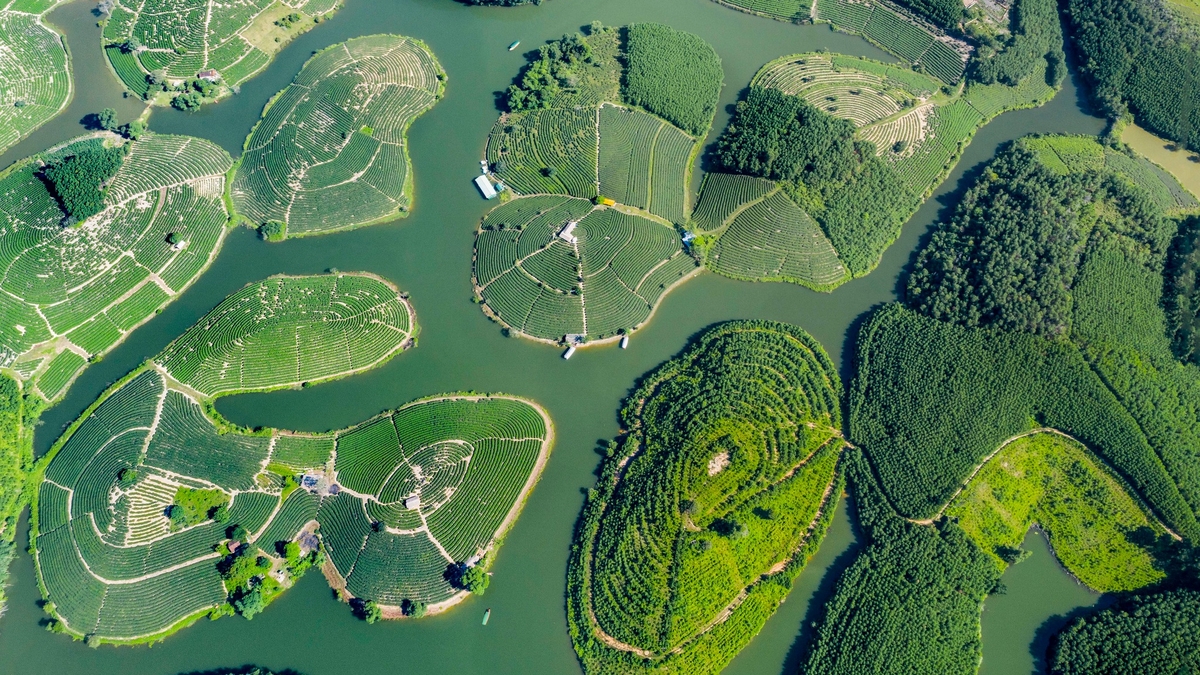



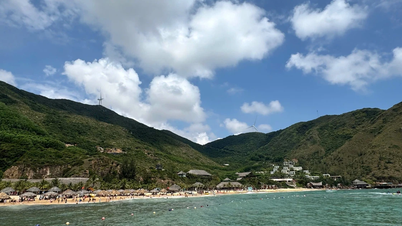



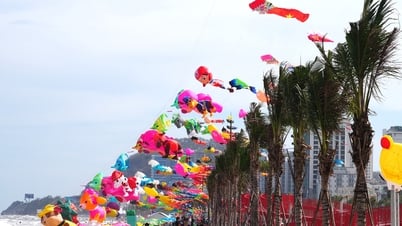







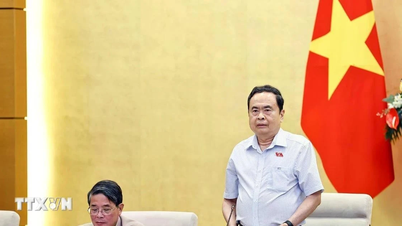


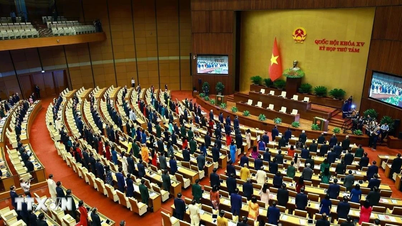
![[Photo] President Luong Cuong and Sri Lankan President Anura Kumara Dissanayaka visit President Ho Chi Minh relic site](https://vphoto.vietnam.vn/thumb/1200x675/vietnam/resource/IMAGE/2025/5/5/0ff75a6ffec545cf8f9538e2c1f7f87a)
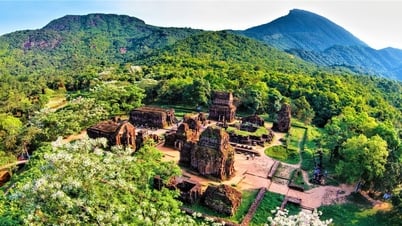

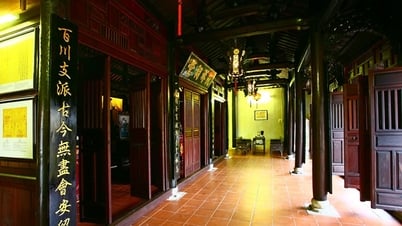

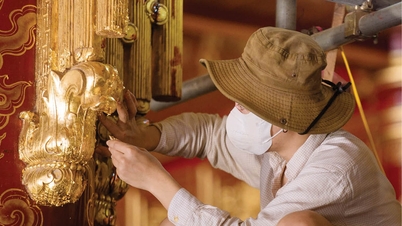





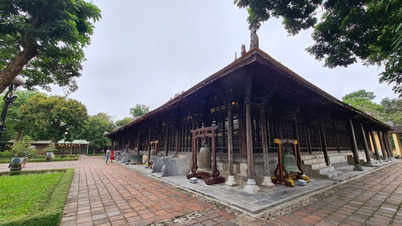

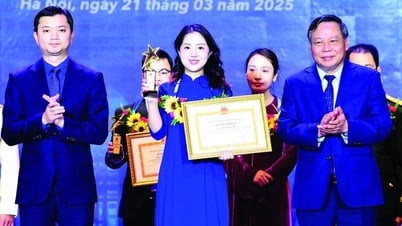

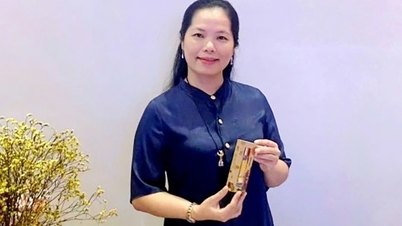

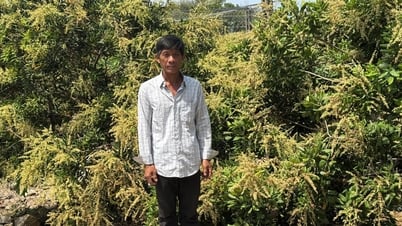
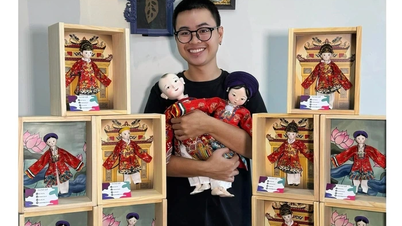










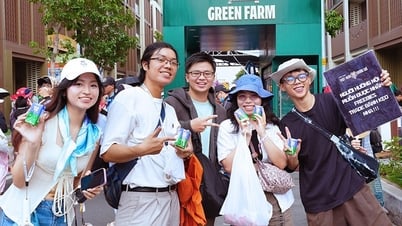


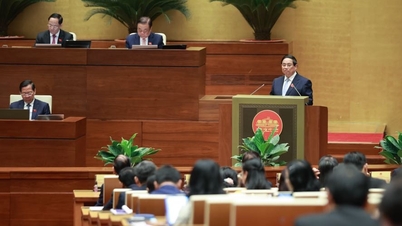

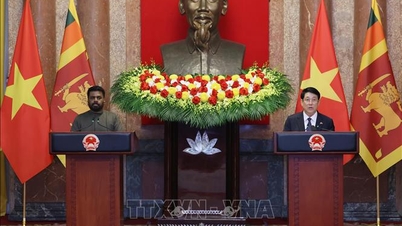
![[Photo] President Luong Cuong presided over the welcoming ceremony and held talks with Sri Lankan President Anura Kumara Dissanayaka](https://vphoto.vietnam.vn/thumb/402x226/vietnam/resource/IMAGE/2025/5/5/351b51d72a67458dbd73485caefb7dfb)

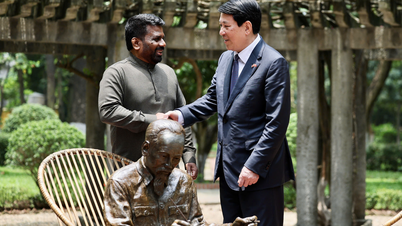
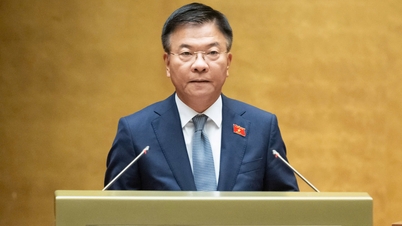
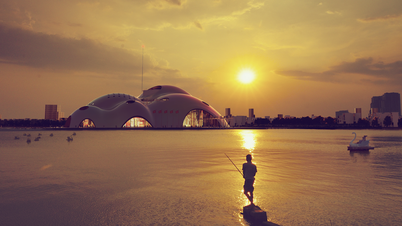


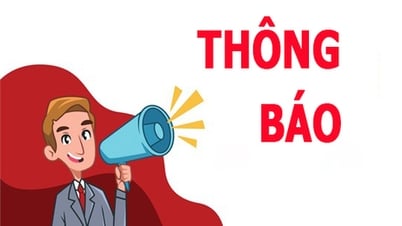

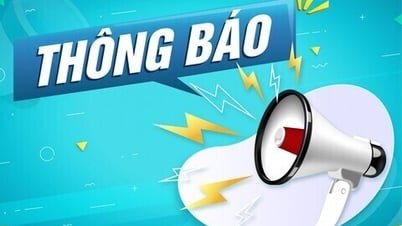


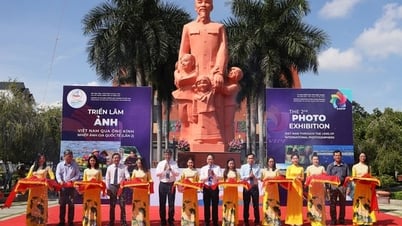


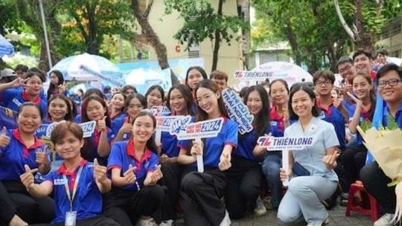








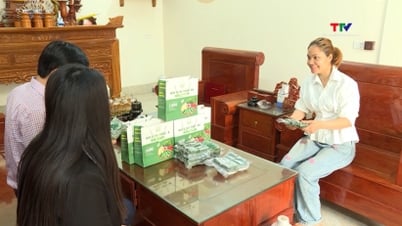

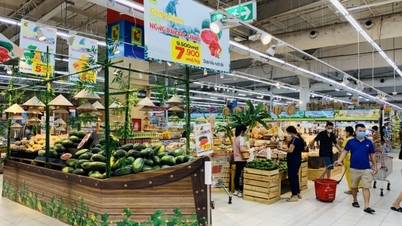

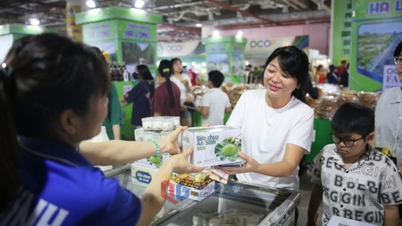

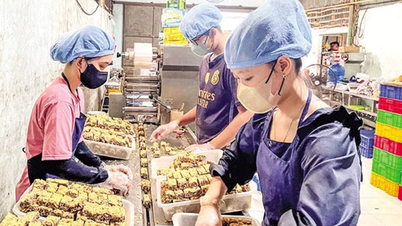



Comment (0)